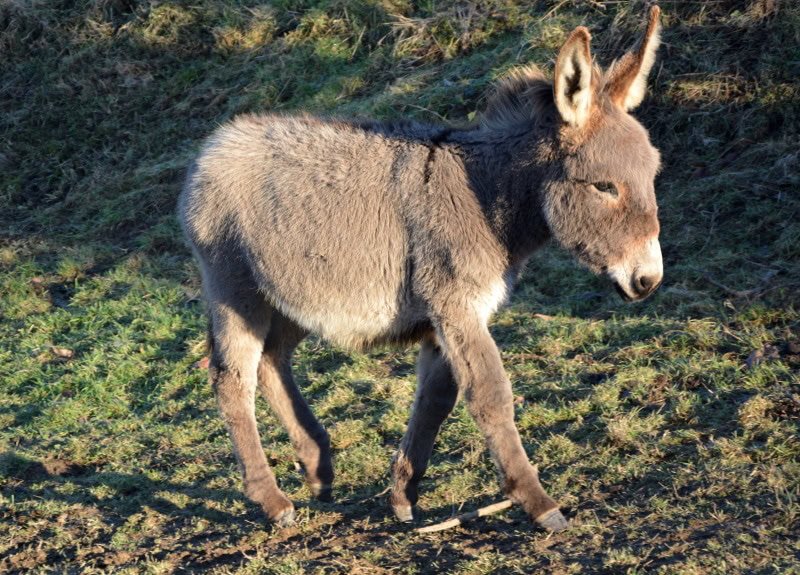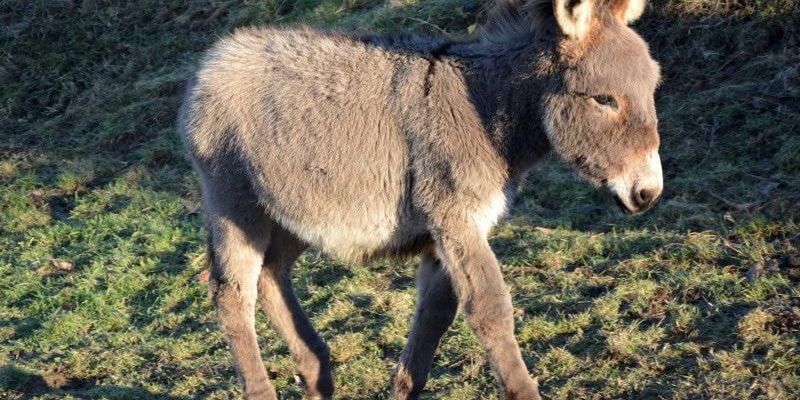
Think of breeding donkeys like baking a cake. You need the right ingredients, a bit of time, and a whole lot of love and attention. Just like that cake takes time to rise and bake properly, breeding donkeys means waiting through a crucial period of gestation followed by the excitement of new life. Let’s break it down into bite-sized pieces, focusing on what you need to know about gestation, birth, and caring for your foal.
The Breeding Process: Getting Started
Before we dive into gestation and birth, let’s talk about how to start breeding donkeys. The first step is to choose your donkeys wisely. You’ll want a healthy female donkey (a jenny) and a healthy male donkey (a jack). Their genetic backgrounds matter, so consider their lineage.
Once you’ve selected your donkeys, their mating can happen naturally or through artificial insemination. Here’s the thing: donkeys are seasonal breeders, so they generally mate in spring and fall. Mating usually results in a successful pregnancy, but it’s good to know that not every attempt will be fruitful. It might take a couple of tries before you see a bouncing foal.
After mating, you’ll need to keep an eye on the jenny. Just like a farmer watches for signs of a storm, you’ll look for signs that she’s pregnant. Behavior changes, milky discharge, or even weight gain might indicate pregnancy. This stage is all about being observant and ready to support her during the next important steps.
Gestation: The Waiting Period
Once you confirm pregnancy, the real journey begins. Gestation in donkeys typically lasts about 11 to 14 months, which is significantly longer than many other farm animals. Imagine waiting for a cake to finish baking—patience is key! During this time, the jenny needs extra care and attention.
A pregnant jenny will benefit from a well-balanced diet rich in hay, grains, and minerals. You might be wondering, “What does that look like?” A good diet helps ensure the foal develops properly. It’s similar to how we need the right nutrients during pregnancy. Make sure she has access to clean water and isn’t stressed—stress can impact her health and the foal’s development.
As she approaches her due date, you’ll want to monitor her closely. Look for physical signs like a swollen belly and increased nesting behavior. Think of it as waiting for a friend to arrive after a long trip; you want everything to be just right for the moment they come home!
The Birth: Welcoming New Life
When the big day finally arrives, it’s a time of excitement and anticipation! Labor can last anywhere from a few minutes to a few hours. During this time, keep a close watch, but also give her some space to do her thing. Just like how humans often prefer privacy during childbirth, donkeys can be the same way.
When you see the foal starting to emerge, don’t panic. It’s perfectly natural for the jenny to lie down and push. After the foal is born, it’s crucial that it stands up and starts nursing within a few hours. Foals are surprisingly resilient; they often stand and walk within an hour of birth! This first milk, called colostrum, is packed with nutrients and antibodies that help the foal’s immune system.
Post-birth, check on the jenny and foal regularly. Make sure the foal is nursing and that the jenny is comfortable. It’s like celebrating a new addition to the family; you’ll want to offer support and loving care.
Foal Care: The First Few Months
Caring for a foal is a joyous yet demanding task. In the first few weeks, ensure the foal is getting enough milk from the jenny. It’s essential for its growth and health. If the jenny is struggling or is not producing enough milk, you might need to step in with a specialized foal milk replacer.
As the foal grows, you’ll introduce it to solid food. Start with high-quality hay and grains. Think of it as transitioning from baby food to a full meal—gradual changes are key to a healthy diet. Don’t forget to provide clean drinking water!
Social interaction is super important too. Let the foal experience different environments and, if possible, introduce it to other friendly animals. Just like kids, foals learn through play and interaction. It can be fun to watch them gallop around and play together!
Health Care: Regular Check-Ups
Don’t skimp on health care for your foal. Schedule regular visits with a veterinarian—usually within the first few weeks of life. The vet can check for any genetic issues and ensure the foal is growing properly. Vaccinations and deworming are also crucial. Think of this as making sure your little one is ready to go out and explore the world safely!
You’ll also want to keep an eye on any signs of illness. A foal should be active and playful. If you notice clinginess or lethargy, it might be time to call the vet. Early detection usually leads to better outcomes.
Regular hoof care is important as well. Just like our feet, donkeys need attention to their hooves. When the foal is old enough, regular trimming will keep everything in tip-top shape. You wouldn’t want them to be running around with painful hooves, right?
Breeding donkeys is more than just a process; it’s a rewarding experience filled with learning, caring, and joy. Through the stages of gestation, the excitement of birth, and the tender moments of foal care, you’ll find yourself deeply connected to these wonderful animals.
So if you’re considering breeding donkeys, remember to approach it with patience, love, and respect for the animals. It’s like nurturing a garden; with the right care and environment, you’ll witness the beauty of life unfold right before your eyes. Whether it’s your first time or you’re a seasoned pro, each pregnancy and foal brings its unique journey. Embrace it, and enjoy every moment!

